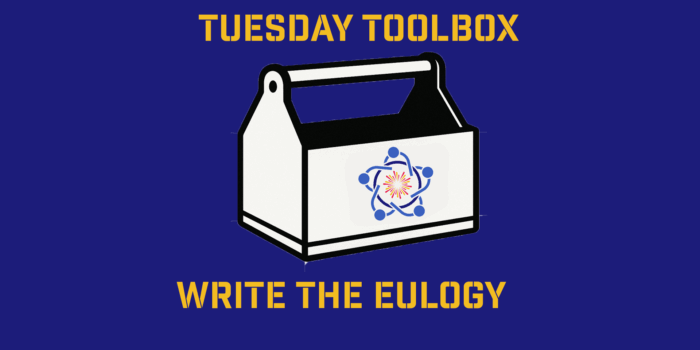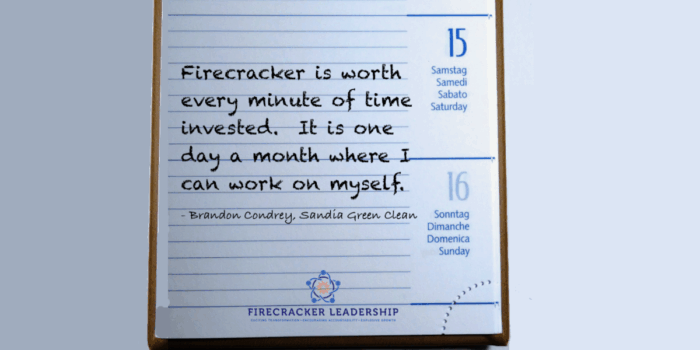Speak your gratitude I recently attended a funeral for a man who had touched so many lives. Story after story…
While we feel the pain, the economists say it’s gonna be ok. ITR Economics shares some insights and perspective.
The below transcript is a literal translation of the podcast audio that has been machine generated by Rev.
Hi, everyone. I’m Alan Beaulieu from ITR Economics, and I’d like to talk to you about some things that are in the news. There’s certainly no lack of things in the news, and I’m going to not talk about Ukraine in case you’re wondering. We’ve been talking about that in our presentations and through our consulting clients, and I think we have blogs on the subject. So I want to talk to you about some other things. I want to talk to you about the consumer, interest rates, and gasoline.
Now, they go together really well. And if you talk to folks about the interest rate hike, and if you were to go online and start looking at articles, you’d find plenty to make you wonder, oh my gosh, this 25 basis point rise that the Federal Reserve Board just put through, man, that’s going to hurt. It’s not. It’s going to be uncomfortable for some people on the edges, but certainly not many, and it’s not going to be one of those things where, oh, your credit card debt, all of a sudden you can’t pay it. That’s not the case either.
It’s not going to be one of those things where it’s going to stop car sales or stop home sales. Home sales are already slowing down. In case you’re interested, the February number for single-family housing starts was a really good number, in that it was slightly milder than average, but it was up and it wasn’t off by much on the average rise. So the consumer is still buying homes and houses are still being built, and interest rates are not going to derail all that.
In addition to that, there’s some statistics behind that. When you look at the individual and the person on the street, we can afford this debt. It’s not something that is beyond the pale, something that we can’t handle. When you are looking at the household debt service payments as a percent of disposable personal income, and disposal personal income is your after tax income, okay? So when you look at what a household is paying, and you look at what they’re taking in after tax, 9.2% of our taking in home go to making these household debt payments, 9.2%. How is that compared to history? It’s incredibly low.
Before the COVID, it was low for five years. We were cruising at an average of 9.9 for five years, which was very low. The average since 1980 is 11.4%, and the last time there was something close to this low is in 1993. From 1993 to December 2007, right before the Great Recession, our percent of debt to disposable personal income and debt service payments to disposable personal income just rose, and rose, and rose. It was not a straight line. Obviously, nothing is, but every trough was ascending and every peak was too, until we capped out at 13.2%. Those differences don’t sound like a lot, I get that, but they’re enough.
The bottom line here is that we, the consumer, are cruising at a very low level of debt service payments compared to our income, which means that if the cost of our debt goes up a little bit, we’re still below 40-year levels. We’re still at a place where we can handle it. And as we look at that, it certainly is encouraging. When you look at retail sales for the latest month of available data, February, and you deflate it, now, all inflation is out of it, so there’s no messing around with the rate of inflation, it’s still 14.4% above year ago levels and rising in phase B. The 3/12 rate of change is at 7.7% and in phase C.
So what we’re looking at here is that retail sales are slowing in their rate of rise. And this has been going on for months. Now, it’s good that it’s going up. The February number was a good number, there were no problems there. What I want to call your attention to is the fact that it’s been slowing down for months. And as that 3/12 has been coming down for months and the rate of rise is slowly changing in terms of its velocity, I understand that was happening long before the 25 basis point increase by the Federal Reserve Board. The press is not likely to make that connection. I want to make sure that you do. We have leading indicators that were signaling months ago, that this was going to happen in terms of consumer spending. So don’t let this 25 basis point scare you. Don’t let it keep you from buying a home. As a matter of fact, go out and buy a home. Don’t think that the economy’s going to go into recession. It’s not going to.
Now the other thing that’s in the news that I want to make sure we address is gasoline prices. I want to get too, into one TrendsTalk. Gasoline prices are impacting everyone. Just the other day, my wife told me how much it costs to fill up her vehicle. And it’s more than she’s had to spend on that in a long time. Let’s put it in context. Okay? When we look at what we spend for gasoline as a percent of our annual median earnings in this country, it’s 3.3%. So you’re spending 3.3% of your annual earnings on gasoline if you’re a normal driver. If you’re driving 200 miles a day, obviously you’re spending more if you’re going out of pocket, not reimbursed. But if you’re doing about 13,000 miles a year and you’re getting a vehicle that’s somewhere in the mid 20 miles per gallon, you’re at 3.3%.
Now, if you look back to 2011, ’12, ’13, ’14, it was higher than that. When you look back to right before the Great Recession, it was much higher than that. So what’s happening here is that our incomes have been going up, which means that even though gasoline’s higher, and we don’t like it, it’s actually affordable. It was less than ’18, ’19 and ’20, ’20 especially because of COVID. But still, don’t let this panic you. Don’t make this into something that it’s not. And this is not going to be an economy crusher. This is not going to make it impossible for the consumer to keep the economy going. This is going to be a pain in the neck for a lot of people. And this is going to be very difficult for lower income people.
I’m not in any way trying to take that off the table or minimalize it. I’m looking at the macroeconomic environment. I want you to understand this is not going to push us into a recession. The economy will be slowing down. It is slowing down in segments already. We’ve been forecasting for over a year that it was going to be slowing down. We have leading indicators that have been telling us for a number of quarters that it’s going to be slowing down, nothing surprising about this.
And as the economy slows, and as inflationary pressures slow, when supply chain pressures ease, and the producer pricing start to come down, you may find that those forecasts about 250, 300 basis point rises by the Federal Reserve Board in the next two years, you may find that they’ll do it, but you may find that they’re going to look back and go, hey, we were entirely successful. It’s okay. They can think that. You and I know it was already happening. And you and I know that there’s going to be less reason for them to raise interest rates so dramatically as we go forward. Of course, they’re going to raise them again, but I would not be worried about too many significant heights this year. There may be a number of 25 basis point hikes and as they do so, think of this TrendsTalk, we’ll be fine.
Thank you for listening. I’m Alan Beaulieu. This is ITR Economics, and I look forward to seeing you on the next TrendsTalk.



